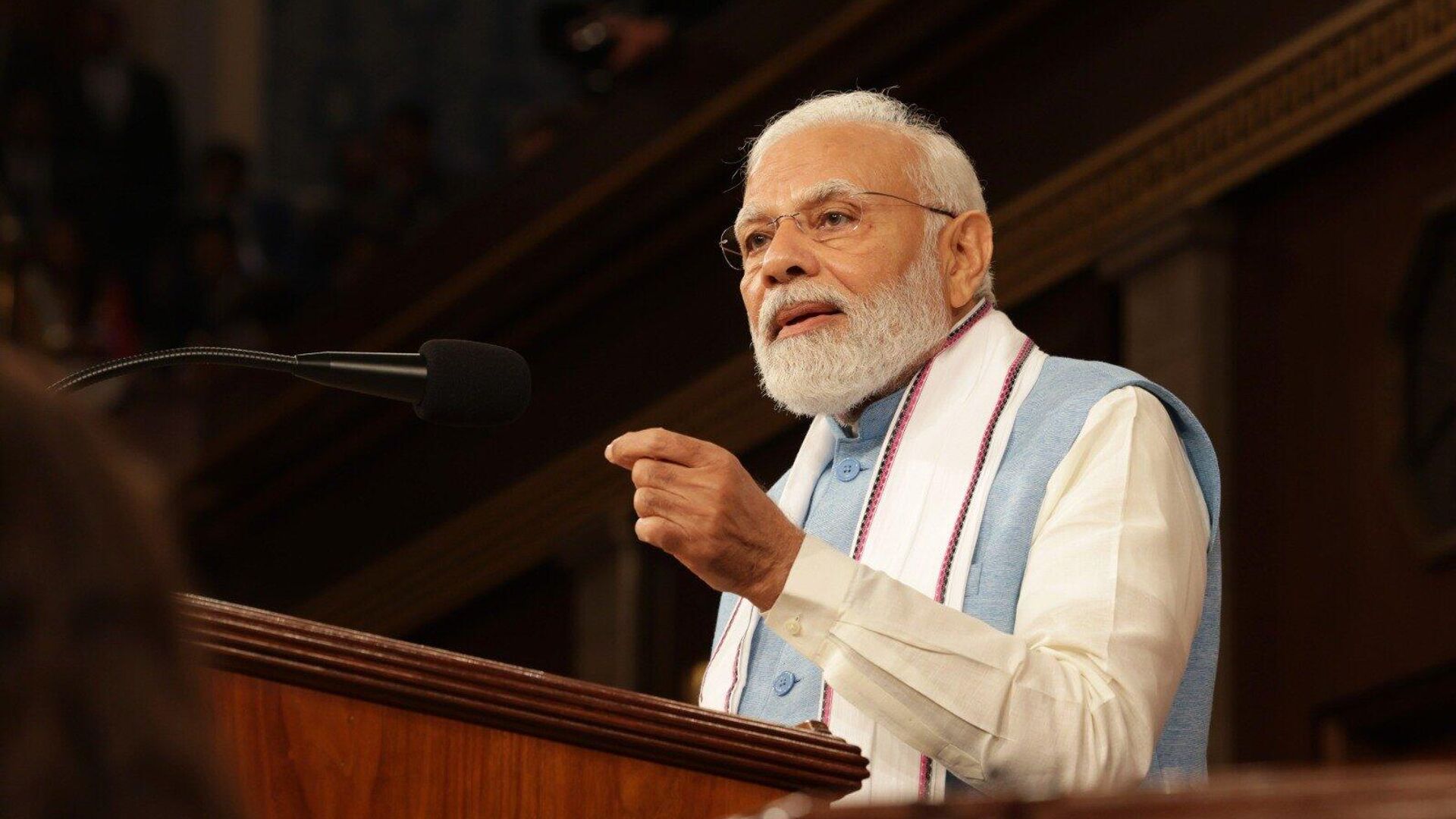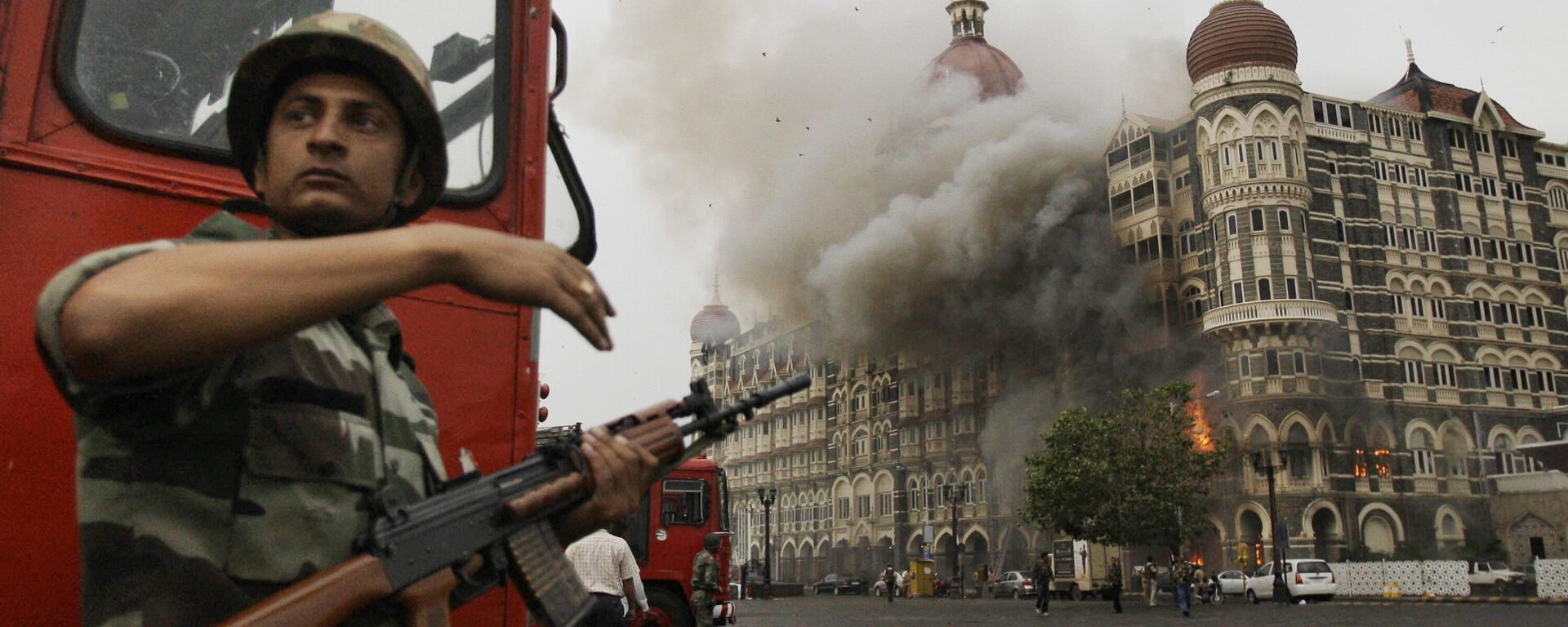Modi Urges Islamabad to Ensure Pakistani Territory Not Used for Anti-India Attacks

© Photo : Twitter/ @narendramodi
Subscribe
India has long accused Pakistan of harboring anti-India militants on its soil, including the perpetrators of the Mumbai terror attacks of 26 November 2008.
Indian Prime Minister Narendra Modi on Thursday called on Islamabad to take action against terrorist networks that target India from Pakistan's territory.
Modi's remarks came during his state visit to the US where American President Joe Biden is currently hosting him at the White House.
"They strongly condemned cross-border terrorism, the use of terrorist proxies and called on Pakistan to take immediate action to ensure that no territory under its control is used for launching terrorist attacks," a joint statement issued following bilateral talks between Modi and Biden said.
Relations between India and Pakistan have remained tense since independence in 1947 over the region of Kashmir, which is administered by the two neighbors at present.
The nuclear-armed nations have even contested three wars over the issue, with the most recent conflict, called Kargil War, taking place between the two sides in 1999.
Moreover, India has often accused Pakistan of using non-state actors, including terrorist groups such as the Lashkar-e-Taiba (LeT)* and Jaish-e-Mohammad (JeM)* for targeting India.
Indian security agencies have held LeT responsible for the deadly 2008 Mumbai terror attacks that killed 166 people and wounded over 300.
Under Modi, New Delhi, however, has taken a tough approach in dealing with Islamabad with India carrying out surgical strikes on terrorist camps in Pakistan-administered Kashmir in 2016 followed by an airstrike by the Indian Air Force (IAF) on a terror facility in Balakot after a terror strike that killed 40 paramilitary soldiers.
On the other hand, the US has had close ties with Pakistan, but relations have witnessed a downward spiral in recent years, especially since the return of the Taliban in Afghanistan in August 2021.
American security advisors allege that the Taliban's return was made possible by covert aid from Pakistan's all-powerful Army and its intelligence agency Inter-Services Intelligence (ISI).
The nuclear-armed nations have even contested three wars over the issue, with the most recent conflict, called Kargil War, taking place between the two sides in 1999.
Moreover, India has often accused Pakistan of using non-state actors, including terrorist groups such as the Lashkar-e-Taiba (LeT)* and Jaish-e-Mohammad (JeM)* for targeting India.
Indian security agencies have held LeT responsible for the deadly 2008 Mumbai terror attacks that killed 166 people and wounded over 300.
Under Modi, New Delhi, however, has taken a tough approach in dealing with Islamabad with India carrying out surgical strikes on terrorist camps in Pakistan-administered Kashmir in 2016 followed by an airstrike by the Indian Air Force (IAF) on a terror facility in Balakot after a terror strike that killed 40 paramilitary soldiers.
On the other hand, the US has had close ties with Pakistan, but relations have witnessed a downward spiral in recent years, especially since the return of the Taliban in Afghanistan in August 2021.
American security advisors allege that the Taliban's return was made possible by covert aid from Pakistan's all-powerful Army and its intelligence agency Inter-Services Intelligence (ISI).
*terror organizations banned in Russia, India and other states


